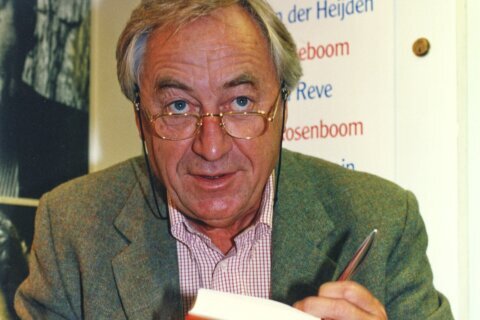In 2008, the Emmett Till Unsolved Civil Rights Crime Act was signed into law, shedding light on the stories of 150 victims who still haven’t received justice in race-related cases.
One of those cases involves the murder of NAACP leader Wharlest Jackson in Natchez, Mississippi, chronicled in Frontline’s “American Reckoning” at 10 p.m. Tuesday on PBS.
“Wharlest Jackson was a foot solider in the fight for civil rights and the Black freedom struggle,” Co-Director Yoruba Richen told WTOP. “He was a father of five. We tell the story of what happened to him, but we also tell the story of the larger fight in Natchez for freedom and the Black resistance that the community had against the white terrorism.”
That armed resistance group was known as the Deacons for Defense and Justice.
“They were all through Louisiana and Mississippi,” Richen said. “[They] protected the Black community and did not ascribe to the non-violent strategy of we don’t hit back if we’re hit.”
Richen and co-director Brad Lichtenstein combine archival footage with new interviews to lay out the murder details that began in 1965 with efforts to integrate the city.
“There was a whole effort to integrate the city through the NAACP, headed by a man named George Metcalf,” Richen said. “Metcalf was bombed, but he survived. Wharlest and Metcalf were friends. They both worked at Armstrong Tire Plant in Nachez, Mississippi and Wharlest drove him to and from that plant as he was recuperating.”
In 1967, Wharlest was promoted at the plant to a previously white-only position.
“The Armstrong Tire Plant was full of [Ku Klux Klan] members and this was the last straw for them,” Richen said. “They planted a bomb in Wharlest’s truck and that’s how he was killed. His son, Wharlest Jackson Jr., was only 8 years old when this happened. He tells us how he heard the explosion, went down to the plant and found out that it was his father.”
The filmmakers also interview children of the KKK members.
“It’s very important that we included those voices,” Richen said. “This violence is perpetrated by somebody. We can’t just talk to the victims. We need to find out, if the perpetrators aren’t alive, then their family members, their children, how the trauma and the stories are three generational. … Brad and I felt that it was very important, crucial.”
Do we get any closure in the end?
“The clues are pieced together, especially with the help of Stanley Nelson, the journalist who has looked into this story,” Richen said. “It’s given to the family in terms of what the most likely scenario was of what happened to their dad.”
Such an old case contrasts with Richen’s recent film “The Killing of Breonna Taylor.”
“It’s very hard and upsetting to see how this pursuit for justice continues over a long time,” Richen said. “We still are searching for that justice and accountability like in Breonna Taylor’s case. This is a continuation of the justice that we didn’t get in the past. It’s very hard emotionally to tell these stories … when there is an assault on telling our true history.”
Listen to our full conversation here.








